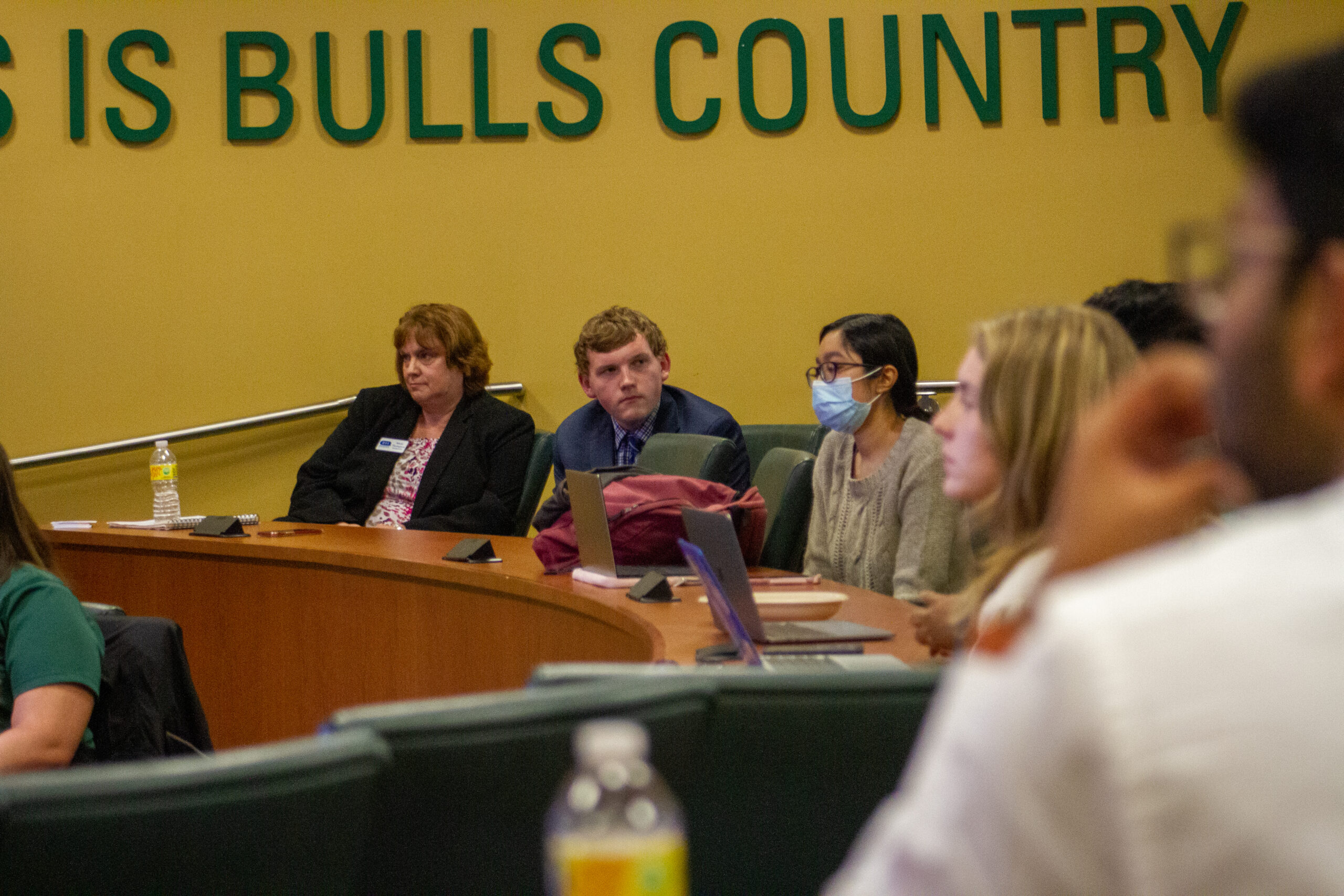SG senate recognizes 988 hotline after hourlong confusion

What was supposed to be a simple vote among Student Government (SG) senators to approve a resolution recognizing the new nationwide suicide and crisis hotline, turned into an over hourlong discussion of risks some believed may come with calling.
The resolution eventually passed with 28 yes’, one no and one abstention at Tuesday’s senate meeting. It states, “The intent of this proclamation is to recognize #988, a new Behavioral Health Crisis Hotline number.”
Some senators brought concern that the resolution could be misread as SG supporting 988 or encouraging students to use it in case they wish to seek someone to talk to about their mental health.
When someone calls the hotline, they will be connected to a support specialist in their area, according to 2-1-1 Tampa Bay Cares President Micki Thompson. If it seems the caller is at risk, the therapist on the line can send a response team to their location.
Some did not agree with the implementation of the hotline as it poses some possible risks to the caller such as police intervention and nonconsensual psychiatric treatment.
Some senators thought SG should provide students with more details as to “what they’re signing up for” when they call the hotline. This way, they can be prepared.
Amid conflating the actions of recognizing and endorsing, some present members of the SG senate spent almost half an hour debating phrasing and word choice.
The debate, founded on a misunderstanding of what exactly the senate was voting on, circled around the confusion that SG was endorsing the hotline, when the resolution simply states it is recognizing it.
“When you’re writing a resolution, the intent is what this resolution is about. You don’t look beyond the scope of that,” Student Body Vice President Amy Pham said to clarify to the senators the purpose of the vote.
“The intent of this proclamation is to recognize 988, a new behavioral health crisis hotline number. That does not mean that we are supporting it, we are just recognizing it.”
However, some senators felt the resolution needed more clarity that SG stands neutral on the topic.
As an anonymous hotline, some senators thought it was odd and possibly invasive that a caller’s location can be found. They also worried that response teams or police personnel would be sent without the caller’s consent.
Thompson said support would only be sent if the caller seems to be in imminent danger of hurting themselves.
“The goal is to talk with folks,” she said. “The vast majority are about emotional support, relationship breakup, family problems in the home, whether it’s substance use issues or addictions for other family members and they are having to live with that in their home and how they cope with it. That’s the vast majority of those conversations.”






